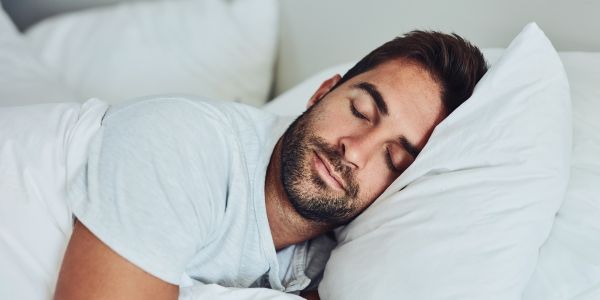There are few things better than feeling well-rested after a good night’s sleep.
You function better throughout your day, are less likely to make bad food choices and more likely to make better decisions overall. Research shows that’s because “the restorative function of sleep may be a consequence of the enhanced removal of potentially neurotoxic waste products that accumulate in the awake central nervous system”. Basically, waste is cleaned from your brain while you sleep, helping your body reset for the next day.
Though we know the benefits of a good night’s sleep, that doesn’t always mean we have the ability to catch the proper amount of Zzz’s. Here are some tips to make sure you’re getting the right kind of sleep and enough of it:
Put away your electronics. The artificial light from TV, laptops and smartphones has a direct impact on your sleep. Research shows that the light from these screens (“blue” light) affects your melatonin levels, which help regulate your sleep and wake cycle.
Have a sleep schedule. It’s important to go to bed and wake up at the same time each day (even on the weekends). Our bodies appreciate routines and a schedule also helps your sleep-wake cycle stay on track. In time, a sleep schedule will lead to you falling asleep faster and sleeping better.
Wind down. Let your mind and body know that it’s getting close to bedtime. The best way to do so is by developing a bedtime routine. Your body will start to recognize the signals that it’s time to fall asleep. Your routine should consist of relaxing activities, like reading a book, drinking a cup of tea or taking a warm shower. Turning off electronics and avoiding working out 3-4 hours before bedtime will also help your mind and body unwind.
Watch what you eat and drink. It’s important to fall asleep not too hungry and not too full. Try to turn off the kitchen lights and stop eating one hour before bedtime. As you approach bedtime, keep your intake light by avoiding heavy meals and carbs. Although alcohol can relax you and make you feel sleepy, it can also lead to a crummy night’s sleep, waking you up multiple times throughout the night. Go for warm drinks, like warm milk or decaf tea, instead. And, speaking of decaf… be sure to cut the caffeine hours before bedtime!
Still counting sheep? Follow these tips as well:
- Avoid nap time. If you must, keep them under 20 minutes.
- Determine your best bedtime. Thanks to the Sleepyti.me calculator, you can enter your wake-up time and find the bedtime that ensures you wake up between REM sleep cycles, leaving you feeling much more refreshed in the morning.
- Take deep breaths. Long, deep breaths will help relax your mind and body, helping put you in a state of relaxation.
- Listen to white noise. There are several apps like White Noise Lite to help you zone out faster.
- Turn on the lights as soon as you wake up. The bright light will help your body regulate more quickly.
Like this post? Read these:
- Wearable Sleep Trackers: Do They Actually Work?
- You Snooze, You Lose: Think Before You Reach for that Alarm
- Realistic Ways to Reduce Stress Throughout the Day








